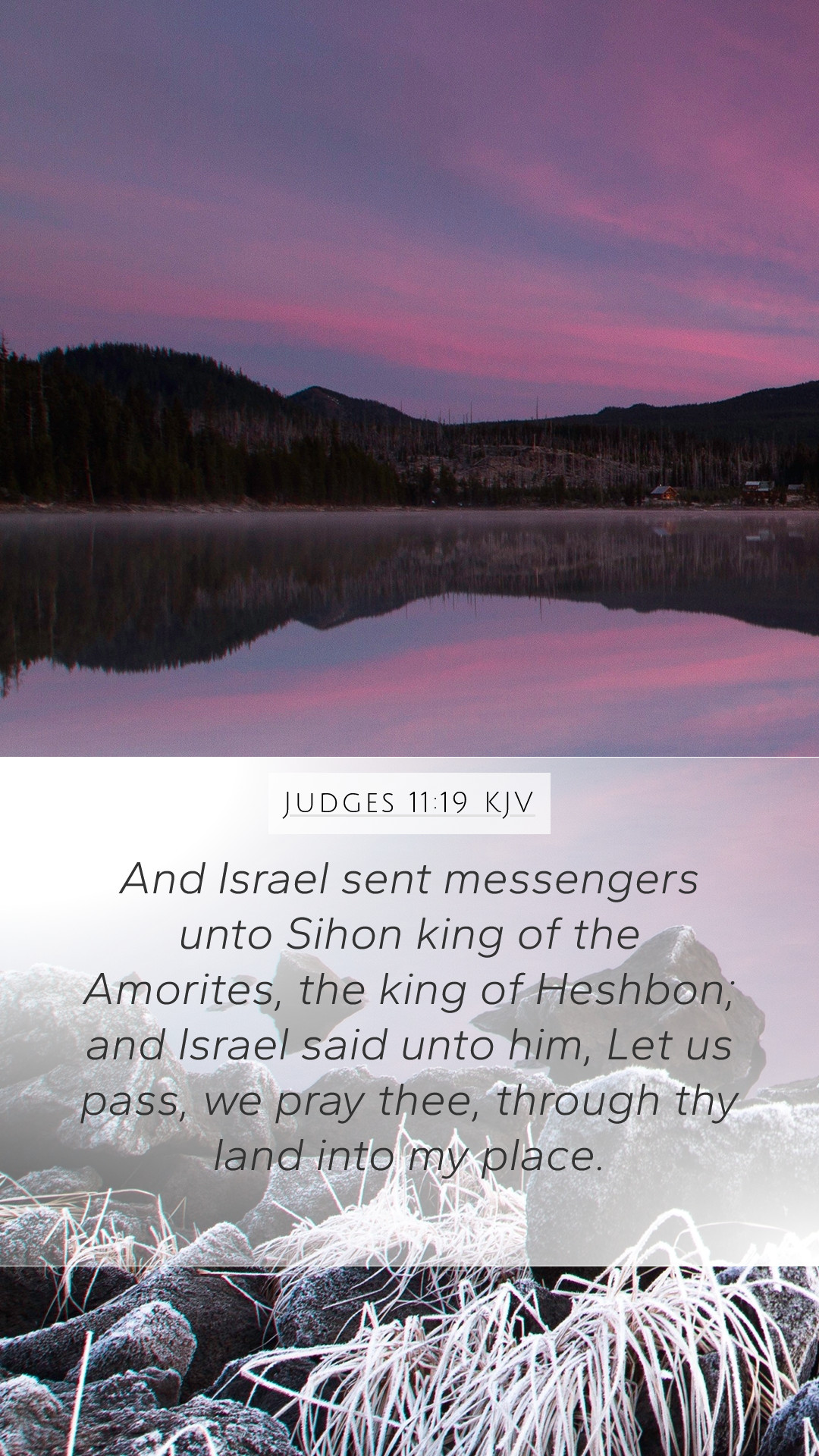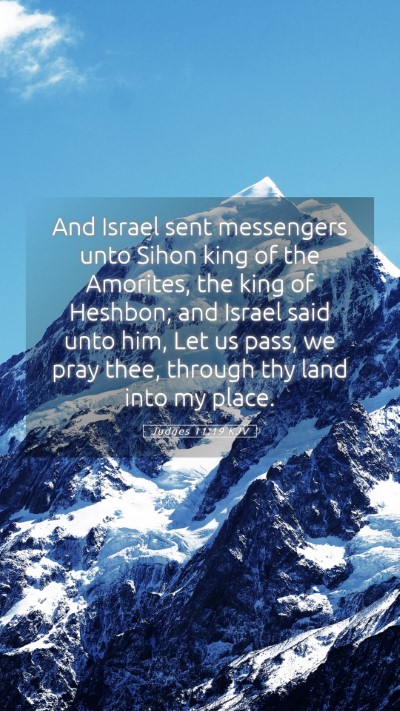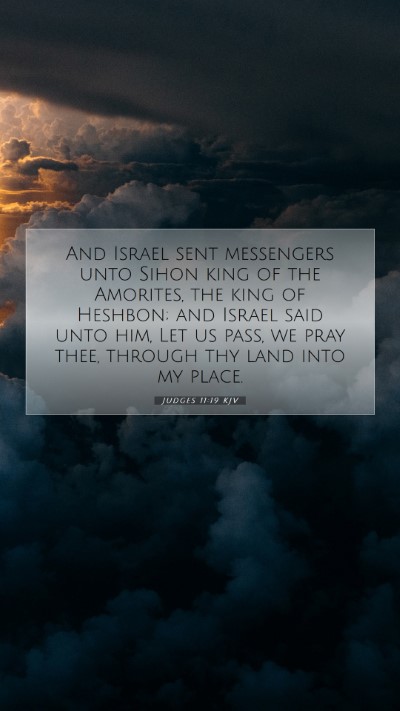Bible Verse Commentary on Judges 11:19
Judges 11:19 states: "And Israel sent messengers unto Sihon king of the Amorites, saying, Let us pass, we pray thee, through thy land: we will not turn to the right hand nor to the left." This verse serves as part of the narrative surrounding the conflict between the Israelites and the Amorites during their journey to the Promised Land.
Understanding the Context
In order to provide a comprehensive understanding, we must explore the historical and narrative context surrounding Judges 11. The Book of Judges outlines the cyclical pattern of Israel's sin, oppression, crying out to God, and deliverance through judges. This specific verse occurs during the leadership of Jephthah, who is summoned to lead Israel against the Amorite oppression.
This request for passage through Sihon's land underscores the Israelites' desire for a peaceful approach in their quest for settlements, which contrasts sharply against the backdrop of conflict that often marked their journeys.
Interpretation from Public Domain Commentaries
- Matthew Henry's Commentary:
Henry notes that this request demonstrates the Israelites’ attempts to negotiate peace and avoid unnecessary conflict. Sihon's rejection indicates a broader theme of hostility faced by the Israelites, emphasizing their constant struggle for land and security.
- Albert Barnes' Notes:
Barnes focuses on the adherence to pathways, symbolizing fidelity in their quest. The phrase "we will not turn to the right hand nor to the left" illustrates their commitment to peaceful passage without trespassing or causing disruption, reflecting their integrity in dealings with neighboring nations.
- Adam Clarke's Commentary:
Clarke emphasizes the significance of Israel’s inquiry as a means to highlight their intention for peaceful cohabitation. His commentary suggests that Juxtaposition between Jephthah's leadership style and that of previous judges indicates evolution in Israel’s governance and tactical approach to conflict resolution.
Key Themes and Messages
This verse encapsulates several critical themes essential for Bible study groups and individuals seeking to understand the deeper meanings embedded within Scripture:
- Peace and Conflict Resolution: The request made by the Israelites signals an intention to engage in peaceful dialogue rather than resorting to warfare immediately.
- Leadership and Authority: Jephthah's role as the judge and leader showcases how leadership in Israel was essential for navigating difficult circumstances.
- Historical Context: Understanding the historical context of Israel's journey aids in interpreting their interactions with surrounding nations, highlighting their struggles and faith in God.
Applying the Passage to Daily Life
When analyzing this verse, it is beneficial to consider its implications for personal conduct in today's world. The concept of approaching potential conflicts with a mindset geared toward understanding and negotiation is valuable not just in personal relationships but also in community engagements.
Additionally, the emphasis on not deviating from one’s path encourages individuals to remain steadfast in their commitments while navigating the complexities of life.
Related Bible Cross References
- Numbers 21:21-32: Israel's request to Edom, showing their approach to neighboring lands.
- Deuteronomy 2:24-37: God's instructions regarding the conquest and possession of land.
- Joshua 12:1-6: Discussion of kings and territories defeated by Israel as they entered the Promised Land.
Conclusion
Judges 11:19 exemplifies crucial lessons about negotiation, leadership, and faith in God’s guidance. By engaging with this passage through biblical exegesis and multiple commentaries, one can garner meaningful insights beneficial for Bible studies, enhancing comprehension and application in modern contexts.


